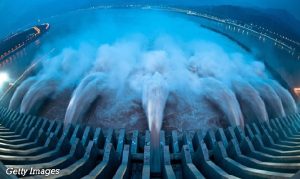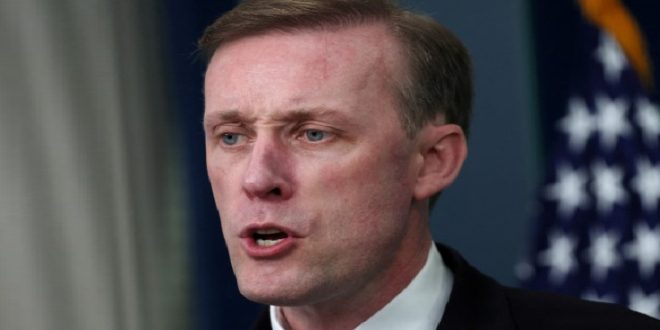05-01-2025
WASHINGTON: US national security adviser Jake Sullivan’s visit to New Delhi from Jan. 5-6 is expected to include discussions with Indian counterparts about the impact of Chinese dams, a senior US official said late on Friday.
Washington and its Western allies have long viewed India as a counter to China’s rising influence in Asia and beyond.
 “We’ve certainly seen in many places in the Indo-Pacific that upstream dams that the Chinese have created, including in the Mekong region, can have really potentially damaging environmental but also climate impacts on downstream countries,” a senior US official said ahead of Sullivan’s visit.
“We’ve certainly seen in many places in the Indo-Pacific that upstream dams that the Chinese have created, including in the Mekong region, can have really potentially damaging environmental but also climate impacts on downstream countries,” a senior US official said ahead of Sullivan’s visit.
The official added that Washington will discuss New Delhi’s concerns in the visit.
The Indian government says it has conveyed its concerns to Beijing about China’s plan to build a hydropower dam in Tibet on the Yarlung Zangbo River which flows into India. Chinese officials say that hydropower projects in Tibet will not have a major impact on the environment or on downstream water supplies.
The construction of that dam, which will be the largest of its kind in the world with an estimated capacity of 300 billion kilowatt-hours of electricity annually, was approved last month.
Washington also expects that topics such as civilian nuclear cooperation, artificial intelligence, space, military licensing and Chinese economic overcapacity will be brought up in the visit, the US official said.
American officials will not be meeting the Dalai Lama during the visit, another US official said.
Washington and New Delhi have built close ties in recent years with occasional differences over issues like minority abuse in India, New Delhi’s ties with Russia amid Moscow’s invasion of Ukraine and alleged assassination plots against Sikh separatists on US and Canadian soil.
In July, the United States has raised concerns with India about its relationship with Russia amid Moscow’s invasion of Ukraine, a US State Department spokesperson told reporters on Monday in response to questions about a meeting between Indian Prime Minister Narendra Modi and Russian President Vladimir Putin.
 India has faced pressure from the West to distance itself from Moscow after Russia invaded Ukraine. New Delhi has thus far resisted that pressure, citing its longstanding ties with Russia and its economic needs.
India has faced pressure from the West to distance itself from Moscow after Russia invaded Ukraine. New Delhi has thus far resisted that pressure, citing its longstanding ties with Russia and its economic needs.
Modi met Putin in Russia on Monday in the prime minister’s first visit since Russia invaded Ukraine in February 2022. In a post on social media platform X, the prime minister said his talks with Putin “will surely go a long way in further cementing the bonds of friendship” between the two countries.
“I will look to Prime Minister Modi’s public remarks to see what he talked about but as I said, we have made quite clear directly with India our concerns about their relationship with Russia,” a State Department spokesperson said in a press briefing.
“And so we would hope (that) India and any other country when they engage with Russia would make clear that Russia should respect the UN Charter, should respect Ukraine’s sovereignty and territorial integrity.”
Russia has been India’s largest weapons supplier since the Soviet Union days. However, India has also been seeking other options, as the Ukraine war hobbled Russia’s ability to supply munitions and spares.
Washington in recent years has looked to woo New Delhi, opens new tab, with political analysts saying the US sees India as a counter to China in the Asia-Pacific.
While the West has tried to isolate Putin, China, India and powers in the Middle East, Africa and Latin America have continued to build ties. (Int’l Monitoring Desk)
 Pressmediaofindia
Pressmediaofindia




